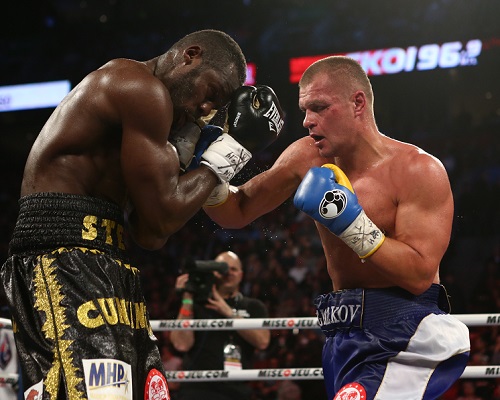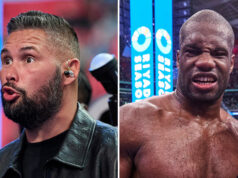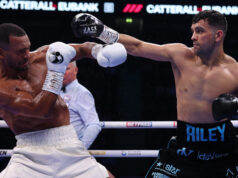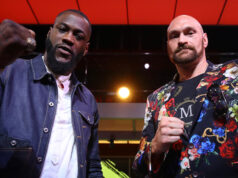With the boxing world buzzing at Tyson Fury being stripped of his IBF strap, the one he just won two weeks ago, Main Events released a lengthy statement defending their position. What follows is, well, all in favor of their man Vyecheslav Glazkov getting his title shot. So we’re adding this note up top and then leaving the rest for you to read and sort out on your own:
In 1990 Evander Holyfield was the mandatory contender for the Heavyweight Title then held by Mike Tyson. Though Tyson’s title defense was overdue, Tyson was permitted to engage in an optional title defense with James Buster Douglas. As we all know, Douglas won by knockout.
Thereafter all hell broke loose. Don King, at the time Douglas’ promoter, and one of the ratings organizations wanted a rematch, avoiding Holyfield. The other organizations were prepared to follow their rules and directed that the Holyfield mandatory take place.
Litigation ensued. Holyfield prevailed and fought James Buster Douglas. Holyfield’s career turned out to be legendary.
Now, 25 years later there is the identical scenario. Vyacheslav Glazkov won a title elimination bout to become the mandatory contender for the title then held by Wladimir Klitschko. There is a well-established rotation system among the ratings organizations when there is a unified champion. When Klitschko fought Tyson Fury it was after Klitschko’s mandatory with Glazkov would have otherwise been due (it was due in August). Following the rotation system, Glazkov stood aside and without any protest watched the Klitschko/Fury bout be scheduled, then postponed, and then rescheduled – all during the period when it would otherwise be his turn to fight the mandatory for the heavyweight title. He stood aside because of the rotation system, which made it the turn of the WBA/WBO to enforce their mandatories. However, everyone knew going into the Klitschko/Fury fight that it was Glazkov’s turn next.
A word on the rotation system. Again, we go back to Evander Holyfield. After Evander Holyfield defeated James Buster Douglas, he was the Unified Heavyweight Champion of the World. A squabble erupted with the different ratings organizations demanding that he engage in different bouts. We were forced to go to Court and the Court enforced an equitable remedy, to wit, the rotation system under which the ratings organizations would rotate the mandatories for unified champions. This enhanced the likelihood of fighters maintaining unified championships rather than allowing them to be stripped due to simultaneous mandatory obligations, something which had occurred too often in earlier years. This rotation system is crucial to enhancing the ability of unified champions to keep their titles.
Of course, a title holder can always voluntarily give up a title. That is the Champion’s choice. However, there is nothing at all unfair about the rotational system or the mandatory system.
No one utilized the rotational system more effectively than Wladimir Klitschko. There is no criticism of this – it was his right.
But everyone involved knew that Glazkov had waited in line for his mandatory to be due. Everybody knew that the rules of the ratings organizations disfavored rematches and generally prohibited them when a mandatory was due.
Again, it was a voluntary choice for Klitschko and Fury to contract for a rematch. Main Events contacted the Fury camp, it was told that Fury could not negotiate because of the rematch clause. Subject to the rules, they had every right to do so even if it meant giving up a title. However, that voluntary choice was one that was made by the camps of Messrs. Klitschko and Fury. There should be absolutely no surprise or anguish that the rules, which are well-established, protect not only the Champion who is protected from being torn from a title by conflicting mandatories, but also the mandatory challenger who is forced to wait due to the rotation because the mandatory challenger is assured that his turn will, in fact, come.
Patrick English, Esq. litigated the cases referenced above, and penned this statement.











